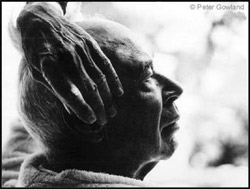I just checked the definition of the word “oligarchia” and it was the exact definition that I remember from sociology class: “a system of government in which power is held by a small group”. The reason for checking the edymology of the word has nothing to do with the upcoming parliamentary elections, although it could have; rather, no matter how strange it may sound, the reason was the telethon organized by the Writers’ Union of Armenia last Sunday during which 140,000 dollars was collected for taking care of the social and literary needs of the writers.
The writer’s social issues are clear enough to understand. A writer is just like any other person living in the reality; however for some reason, the rest, for example radio-engineers, teachers, geologists and chemists, who are not better off than the writers financially, don’t organize telethons or collect funds in order to take care of their social needs. But the literary needs of the writers are as unclear and incomprehensible as the social issues. It’s obvious that they are not going to distribute papers and pens to the more than 400 members of the Writers’ Union, much less fresh ideas for writing novels, short stories and poems.
President of the union Levon Ananyan told a journalist from “Haykakan Zhamanak” (Armenian Times) daily after the telethon: “In these times of anti-culture and anti-literature, we are turning and directing the people’s attention to literature; we are telling them that we have literature, it’s important and it’s for this generation.”
Fine, we turn and fix, but literature is not something hidden for us to turn or direct. Literature either exists or doesn’t. The reader just can’t overlook a good book, if of course we’re not dealing with the considerable electoral mass of the upcoming parliamentary elections.
The department of literature created during the years of the Soviet Union, which was occupied with the separation of writers for decades (I wanted to use the word phrase “making elite”, but then realized that it’s phony), cut off literature from reality and made it a profession that ended in itself. Now, after the years of Soviet rule, the professionals have found themselves in, as the President of the Writers’ Union says, an anti-literary situation. They are in that situation because for many of the writers, literature is not having the product and selling it, but rather forcing certain people to buy that product. This is the reason why I was looking for the edymology of the word “oligarchy” because Armenian writers (with few exceptions) don’t want to become the king and queen of the so-called literature kingdom (phrasing from famous American writer Henry Miller), rather the oligarch of the arable land called literature.
In the beginning of the article, I said that the writer is just like any other person; he can look around, learn from the oligarch who, a couple of years ago, started to grow potatoes, sold immediately and unified enormous lands and with that deprived the poor villagers of the beneficial connection with the state and left them to the caprice of the resellers of the Malatia market. If the organizers of the telethon presented how many books published by funding from the previous donations had actually been sold and if that number was high, perhaps I would understand that the only thing standing in the way for the Armenian writers and readers is the lack of financing. But unfortunately, the only thing lacking is the idea and freshness, as well as the lack of information, which the trimestrial magazine “Foreign Literature” created by the Writers’ Union of Armenia is trying to provide and it seems as though it stopped being published last year. In any case, I came across one of the magazines published in 2006. The lack of information gives Armenian writers the opportunity to judge the Turk for keeping his identity without reading the works of 2006 Nobel Peace Prize winner, Turkish writer Orhan Pamuk (their confession).
Lack of information also gives the opportunity of not knowing contemporary and classical foreign writers and not being informed about the details of their biographies. In his book entitled “My friend, Henry Miller; an intimate biography”, Austrian writer Alfred Perles writes that as you read Miller, you get the impression that he was “always without money, always hungry, he never had a roof above his head and often slept on the bench of the park. Sometimes he worked by washing dishes, sold vacuum cleaners or encyclopedias.”
The American government could have given Miller a home, a salary and printed his books, not including the fact that American NGOs could have organized a “telethon/fund” so that the writer wouldn’t have to rely on his girlfriend Anais Nin, who was writing erotic short-stories for a rich man in order to take care of the writer who is the pride of American literature.
“Whatever I do, I do it for pleasure. The fruits fall from the tree and mature in me, just like on the tree,” this is how Miller writes about himself without mentioning his persona and work. When writing about life, you understand that without his persona and work, something would be amiss. “If something changes for the better in life, it’s due to the response to challenges and inner strive and not by conformity.”
A generation has to change in order to become like this, but it seems as if the new generation is becoming part of the literary oligarchy, thinking that the state will someday direct its attention towards literature. And I thought that literature will someday direct its attention towards man, towards the citizen of Armenia who in no way wants to see the state. But that’s a different story.

